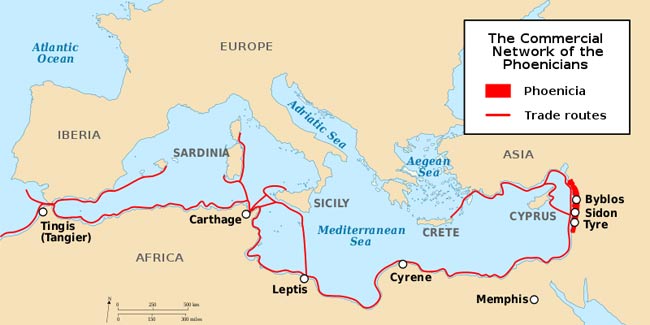Ancient Phoenician City 'Relocated'

Get the world’s most fascinating discoveries delivered straight to your inbox.
You are now subscribed
Your newsletter sign-up was successful
Want to add more newsletters?

Delivered Daily
Daily Newsletter
Sign up for the latest discoveries, groundbreaking research and fascinating breakthroughs that impact you and the wider world direct to your inbox.

Once a week
Life's Little Mysteries
Feed your curiosity with an exclusive mystery every week, solved with science and delivered direct to your inbox before it's seen anywhere else.

Once a week
How It Works
Sign up to our free science & technology newsletter for your weekly fix of fascinating articles, quick quizzes, amazing images, and more

Delivered daily
Space.com Newsletter
Breaking space news, the latest updates on rocket launches, skywatching events and more!

Once a month
Watch This Space
Sign up to our monthly entertainment newsletter to keep up with all our coverage of the latest sci-fi and space movies, tv shows, games and books.

Once a week
Night Sky This Week
Discover this week's must-see night sky events, moon phases, and stunning astrophotos. Sign up for our skywatching newsletter and explore the universe with us!
Join the club
Get full access to premium articles, exclusive features and a growing list of member rewards.
The site of an ancient city called Aüza, the earliest African city of the Phoenician civilization that existed 3,500 years ago, may have been in a different spot than experts have thought, archaeologists report.
Scholars know Aüza existed from written records, but its exact location has never been proven. By studying ancient maps and records, emeritus classics professor Sir John Boardman of the Beazley Archive at Britain's University of Oxford was able to locate a more likely site for the ancient city, he said.
"This is simply a matter of making a suggestion of where the place is actually to be located on a map," Boardman told LiveScience. "Too many people have wanted to put it much too far away."
Where previous historians have thought this outpost was probably far to the west, beyond Carthage in Tunisia (the northernmost country in Africa), Boardman submits that Aüza lies at a site known as Aziris nearer Egypt and Phoenicia, the home base of the Phoenicians centered on modern-day Israel and Lebanon.
Aüza was a port city used to give the Phoenicians a foothold on the continent of Africa. The site of Aziris would have provided "good anchorage, with a defensible promontory and easy access inland," Boardman wrote in a paper describing his findings published in the August issue of the Oxford Journal of Archaeology.
The Phoenicians were a seafaring civilization that lived between 1,550 B.C. and 300 B.C. They were famous for their shipbuilding capabilities and seamanship.
"They were exploring the western Mediterranean the same time the Greeks were," Boardman said. "It's fashionable to think they were in rivalry, but it's much more likely they were friendly to each other."
Get the world’s most fascinating discoveries delivered straight to your inbox.
The Phoenicians were also the first civilization to use the alphabet widely. They spread their system of writing throughout the Middle East, North Africa and Europe, and it is thought to be the ancestor of almost all modern alphabets.
The confusion over the site for Aüza likely stemmed from the many names the site of Aziris has been known by over time, and the poor records identifying where Aüza actually was, Boardman said. Though he can't be sure he's gotten to the bottom of the matter, Boardman said he thinks Aziris is the most likely place to have hosted Aüza.
- Top 10 Ancient Capitals
- History's Most Overlooked Mysteries
- Gallery: The Seven Ancient Wonders of the World
 Live Science Plus
Live Science Plus











